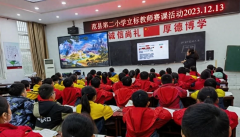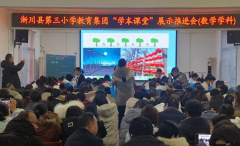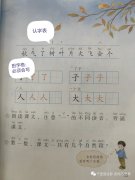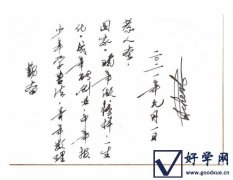外研版,一起,小学英语下册1-6年级,可打印
更近孩子们都已经开始复课了,小编给大家准备了小学英语外研版(一起)小学英语下册1-6年级 期中知识汇总,可以打印下来给孩子复习!
外研一起一年级(下册) 期中知识汇总
外研一(下)一年级 Module 1知识汇总
一、词汇
he(he“s = he is)他(他是) doctor医生 she(she”s = she is)她(她是) me(宾格)我 nurse护士 driver司机 policeman警察 pupil学生,小学生
二、句子
1. He s a doctor. 他是一名医生。
2. Look, this is my mother. She is a teacher. 看,这是我妈妈,她是一名老师。
3. This is my father. He s a doctor. 这是我爸爸。他是一名医生。
4. — Is this your sister Amy? 这是你姐姐艾米吗?
No, it isn’ t. That’ s me! 不是。那是我!
5. That s my brother Tom. 那是我弟弟汤姆。
6. This is my mother. She is a nurse. 这是我妈妈。她是一名护士。
7. This is Jack. He s a policeman. 这是杰克。他是一名警察。
三、句型结构
介绍某人
This / That is my ... He / She is a + 表示职业的名词.
eg: This is my aunt. She is a teacher. 这是我阿姨。她是一名老师。
This is my grandfather. He s a driver. 这是我爷爷。他是一名司机。
外研一(下)一年级 Module 2知识汇总
一、词汇
where (wheres = where is )哪里(在哪里)in 在...... 里on 在...... 上hat 帽子under 在...... 下toy 玩具bed 床look at 看bear 熊
二、句子
1. — Wheres the bird? 鸟在哪?
Its in my hat. 它在我的帽子里。
2. Its on my hat. 在我的帽子上面。
3. Its under my hat. 在我的帽子下面。
4. — Wheres the pencil? 我的铅笔在哪?
Its under the book. 它在书下面。
5. Look at your bed. The bear is under the bed. 看你的床下。熊在你的床底下。
6. — Is it a bag? 它是一个书包吗?
No, it isnt. 不,不是。
三、固定搭配
look at ...
eg: Look at the book. 看这本书。
四、句型结构
询问某物的位置
Where is ...?
Its on / in / under ...
eg: — Where is my coat? 我的外套在哪?
Its on the sofa. 在沙发上。
Where is the cat? 小猫在哪?
Its under the chair. 在椅子下面。
外研一(下)一年级 Module 3知识汇总
一、词汇
eleven 十一twelve 十二don“t = do not 不know 知道other 其他的fish 鱼tree 树let”s 让我们
二、句子
1. How many cats? 多少只猫呢?
2. — Wheres the orange cat? 橘色的猫在哪?
I dont know. 我不知道。
3. — Is it under the bed? 在床底下吗?
Yes, it is. 是的,在床底下。
4. — How many green birds? 多少只绿色的鸟?
Four green birds. 四只绿色的鸟。
5. Lets count. 让我们数一数。
三、句型结构
①
How many +
eg: — How many black cats? 多少只黑色的猫?
Ten. 十只。
How many white crayons? 多少支白色的蜡笔?
Six. 六支。
②
Is +
Yes, it is. / No, it isnt.
eg: — Is the duck in the river? 鸭子在河里吗?
No, it isnt. 不,不在河里。
Is the schoolbag under the bed? 书包在床下面吗?
Yes, it is. 是的,在床底下。
外研一(下)一年级 Module 4知识汇总
一、词汇
head 头touch 触摸nose 鼻子face 脸ear 耳朵mouth 嘴eye 眼睛body 身体these 这些leg 腿hand 手feet (foot 的复数形式)脚;足baby 婴儿
二、句子
1. This is my head. 这是我的头。
2. Touch your nose. 摸的鼻子。
3. — What are these? 这些是什么?
These are your eyes. 这些是你的眼睛。
4. This is Bobo. This is his head. 这是波波,这是他的头。
5. Point to his leg. 指一指他的腿。
三、句型结构
① 介绍自己的身体部位
This is my + 身体部位的名词.
eg: This is my mouth. 这是我的嘴。
This is my head. 这是我的头。
This is my hand. 这是我的手。
② 询问“ 这些是什么?”
What are these?
They are ...
eg: — What are these? 这些是什么?
They are pandas. 他们是熊猫。
What are these? 这些是什么?
They are stars. 它们是星星。
外研一(下)一年级 Module 5知识汇总
一、词汇
they 他(她/ 它)们theyre = they are 他(她/ 它)们是cow 奶牛pig 猪farm 农场duck 鸭子chicken 鸡egg 鸡蛋,蛋thin 瘦的very 很,非常fat 胖的big 大的little 小的
二、句子
1. Look, a pink dog. 看,一只粉色的猪。
2. — Look at these. What are they? 看这些。他们是什么?
Theyre cows. 他们是奶牛。
3. These are chickens. 这些。
4. Look at the father pig. Its fat. 看猪爸爸,它是胖的。
5. That is the mother. Its thin. 那是猪妈妈。它是瘦的。
6. These are his ears. Theyre big. 这些是他的耳朵,耳朵是大的。
7. They’re monkeys. They’re thin. 他们是猴子。他们是瘦的。
三、句型结构
①
What are they?
They are ...
eg: — What are they? 他们是什么?
They are cows. 他们是奶牛。
②
eg: Pandas are fat. 熊猫是胖的。
The monkey is thin. 猴子是瘦的。
外研一起一年级(下册)期中知识汇总
外研一起二年级(下册) 期中知识汇总
外研一(下)二年级 Module 1知识汇总
一、词汇
weather 天气 like 像,如同 What s the weather like? 天气怎么样?sunny 阳光充足的,阳光明媚的 windy 有风的,刮风的 take 带,拿 cap (有帽檐的)帽子 sofa 沙发 street 街道 rain 下雨,雨 snow 下雪 ski 滑雪
二、句子
1. Whats the weather like? 天气怎么样?
2. Its hot and sunny. 天气很热很晴朗。
3. Is it hot? 天气热吗?
4. Wheres my cap? 我的帽子在哪?
5. It s over there. 在那边。
6. It s on the sofa. 在沙发上。
7. It s windy now. 现在有风。
8. Its summer. 现在是夏天。
9. I like running. 我喜欢跑步。
10. What s the weather like here in summer? 这里的夏天天气怎么样?
11. What do you like doing in summer? 你夏天喜欢做什么?
12. I like skiing. 我喜欢滑雪。
三、句型结构
1. What s the weather like +in + 季节+ 地点短语 用于询问某个季节某地的天气。
eg: — What s the weather like in winter? 冬天天气怎么样?
It s snowy and cold. 是下雪天而且很冷。
2. — What do you like doing in + 季节? 询问对方在某个季节喜欢做什么。
I like + 动词-ing + 其他.
eg : What do you like doing in spring? 春天你喜欢做什么?
I like running. 我喜欢跑步。
3. 主语 + like/ likes + 动词-ing + 其他. 表达某人喜欢做某事。
eg :He likes reading books.
外研一(下)二年级 Module 2知识汇总
一、词汇
radio 收音机;电台节目 photo 照片 newspaper 报纸 little 年幼的;幼小的 camera 照相机 smile 微笑 draw 绘画;画 picture 图画;照片 write 写 letter 信 colour 给…着色
二、句子
1. Im swimming. 我正在游泳。
2. Look at my photos. 看我的照片。
3. She is listening to the radio. 她在听收音机。
4. That s your mother. 那是你的妈妈。
5. He s reading a newspaper. 他在看报纸。
6. She is playing the piano. 她在弹钢琴。
7. Im drawing a picture. 我正在画画。
8. I like drawing. 我喜欢画画。
9. Im colouring the picture. 我在给图片涂色。
10. I m writing a letter. 我正在写信。
11. Is he playing football? 他在踢足球吗?
三、句型结构
1. Look at + 名词. 用于提醒某人看某物。
eg: — Look at my toys. 看我的玩具。
2. 主语 + be动词 (am, is, are) + 动词-ing + 其他. 表达某人正在做某事。
eg :My brother is watching TV. 我的弟弟正在看电视。
3. That s + 某人。用于向对方介绍离自己较远的人。
eg :That s my brother. 那是我的弟弟。
4. Be动词 (am, is, are) + 主语 + 动词-ing + 其他? 询问某人是否正在做某事。
eg :Are you having lunch? 你正在吃午饭吗?
外研一(下)二年级 Module 3知识汇总
一、词汇
tidy整理,收拾 room 房间 do 做,干 homework 家庭作业 sleep 睡觉 secret 秘密 card 贺卡 flower 花 science 科学 today 今天
二、句子
1. He isnt doing his homework. 他没有在做作业。
2.Sam isnt tidying his room. 萨姆没有在整理房间。
3.Whats he doing? 他在做什么?
4. — Are you tidying your room now? 你在整理房间吗?
Yes, I am. 是的,我在。
5. Please do your homework. 请你去做作业。
6. Are you doing your homework, Amy? 你在做作业吗,艾米?
7.Im drawing a picture of flowers. 我在画一张花的图片。
8.Its my Science homework today. 这是我今天的科学作业。
9. I m coming to your room. 我要来你房间了。
10. She s reading a book. 她正在看书。
三、句型结构
1. 主语 + be动词 (am, is, are) + not + 动词-ing + 其他. (现在进行时的否定句式)表达某人没有在做某事。
eg :My mother isn t cooking. 我的妈妈没有在做饭。
2. — Be动词 (am, is, are) + 主语 + 动词-ing + 其他? (现在进行时的一般疑问句式)询问某人是否正在做某事。
Yes, 主语 + be动词 (am, is, are)./ No, 主语 + be动词 (am, is, are) + not.
eg : Is he reading books? 他正在看书吗?
No, he isn t. 不,他没有。
3. What + be动词 (am, is, are) + 主语 + doing? (现在进行时的特殊疑问句式)询问某人正在做什么。
eg : What are you doing? 你正在做什么?
I m doing exercise. 我正在做运动。
...
外研一起二年级(下册)期中知识汇总
外研一起三年级(下册) 期中知识汇总
外研一(下)三年级 Module 1知识汇总
一、词汇
二、句子
1. Look! The elephant is clever. 看!大象是聪明的。
2. This is Maomao. She’s very nice. She always helps people. But she’s a bit shy. 这是毛毛。她很友善,总是帮助人们,但是她有点害羞。
3. This is Xiaoyong. He’s very clever. He can make e-card. But he’s a bit quiet. 这是小勇。他很聪明,会做电子贺卡,但是他有点内向。
4. I’ve got another friend. He’s very, very naughty. But we all like him. 我有另一个朋友。他非常非常调皮,但是我们都很喜欢他。
5. This little girl can’t do her maths. I’m going to help her. 这个小女孩不会做数学题。我要去教她。
6. — Whats ten plus ten? 十加十是多少?
Twenty. 二十。
三、句型结构
①
主语+ be 动词+ 形容人性格特点的形容词.
eg: Mark is clever but a bit naughty. 马克很聪明但是有点调皮。
Alice is beautiful and quiet. 爱丽丝很漂亮,还有点内向。
②
Im going to help ...
eg: Im going to help my mother. 我打算帮助我妈妈。
Im going to help Tom. 我打算帮助汤姆。
外研一(下)三年级 Module 2知识汇总
一、词汇
about关于 river河 wide宽的,宽阔的;宽广的 old年代久的,古老的 clock钟,时钟 wheel轮子 round圆形的;球形的 will将,将会 you ll = you will 你将 tower塔 bridge桥
二、句子
1. This house is big, but that one is small. 这座房子是大的,但是那座房子是小的。
2. This tree is big, but that one is small. 这棵树是大的,但是那棵树是小的。
3. Look at this book. It’ s about London. I’ m from London. 看这本书,是关于伦敦的。我来自伦敦。
4. It’ s the River Thames. It’ s very long and wide. 它是泰晤士河,它很长很宽。
5. The London Eye is like a big, round eye! 伦敦眼像一个大大的,圆圆的眼睛。
6. You ll see Tower Bridge. 你将会看见伦敦塔桥。
7. In this park, you ll see a wide river. 在这个公园,你将会见一条宽宽的河。
三、句型结构
①物特点
主语+ be 动词+ 形容词.
eg: The Thames River is very long and wide. 泰晤士河非常长非常宽。
The Big Ben is big and tall. 大本钟很大很高。
②你将会看见......
Youll see...
eg: You ll see many flowers in the park. 在公园里,你会看见很多花。
You ll see a tall building. 你将会看见一个很高的建筑。
外研一(下)三年级 Module 3知识汇总
一、词汇
wont = will not 将不countryside 农村,乡下farmer 农民;农场主there 在那里lots of 许多的,大量的breakfast 早餐have breakfast 吃早餐tea 茶;茶叶tea party (下午的)茶会,茶话会
二、句子
1. — What will you do? 你将要做什么?
Ill go to the zoo. 我将要去动物园。
2. — What will you do? 你将要做什么?
Ill go to school. 我将要去上学。
3. — What will you see? 你们将会看见什么?
Well see lions, tigers and pandas. 我们将会看见狮子,老虎还有大熊猫。
4. I’m visit my grandpa in the countryside. He’s a farmer. 我将要去拜访在乡村的爷爷。他是一个农民。
5. — Will you go, too? 你也去吗?
No, I wont. 不,我不去。
6. — Will we have breakfast at 7? 我们将在7 点吃早餐吗?
No, well have breakfast at 8. 不,我们将会在8 点吃早餐。
7. — Will you visit your grandpa this weekend? 你这周末将会去拜访你的爷爷吗?
Yes, I will. 是的,我会去。
三、句型结构
①
主语+ will + go (to )+ 地点.
eg: We will go home. 我们将要回家。
Mike will go to the zoo. 迈克将要去动物园。
②
主语+ will + 动词原形+ 地点.
eg: I will watch TV. 我将要看电视。
My brother will be a basketball player. 我将要成为一个篮球运动员。
③
Will +
Yes,
eg: — Will you listen to music? 你将要听音乐吗?
Yes, I will. 是的,我将要听音乐。
Will your mother sweep the floor? 妈将要扫地吗?
No. She will wash the clothes. 不,她将要洗衣服去。
...
↓↓↓↓
外研一起四年级(下册) 期中知识汇总
外研一(下)四年级 Module 1知识汇总
一、词汇
machine 机器 welcome 欢迎 crisp 炸薯片 sir 先生 potato 马铃薯,土豆 dangerous 危险的 put 放,安放,放置 wait 等;等待 each 各自,每个
二、句子
1. These machines make crisps. 这些机器做薯条。
2. — What does this machine do, sir? 这个机器是做什么的,先生?
It washes the potatoes. 它是洗土豆的。
3. Dont touch the machines, please! 请不要触摸这些机器!
4. They are dangerous. 它们很危险。
5. You can each have a bag of crisps. 你们每人可以得到一包薯条。
6. Dont feed the baby. 不要给那个婴儿喂食。
7. Play with the baby! 和婴儿。
8. Dont write on the books. 不要在书上写字。
9. Dont walk on the grass! 不要踩草坪。
10. Be quiet, please! 请安静!
三、句型结构
1. Dont + 动词原形 + 其他. 用于提醒某人不要做某事。
eg: Dont make noise in class. 不能在课堂上喧闹。
2. 动词原形 + 其他. 祈使句,表示让(请)某人做某事。
eg: Hold on, please. 请稍等。
Be careful! 小心!
外研一(下)四年级 Module 2知识汇总
一、词汇
二、句子
1. Ive got a new hat. 我有一顶新帽子。
2. — What colour is it? 它是什么颜色的?
It s pink. 它是粉色的。
3. — Is it pink? 它是粉色的吗?
No, it isn t. 不,它不是。
4. Dad bought a new computer for me yesterday. 爸爸昨天给我买了一台新电脑。
5. — Is it expensive? 它很贵吗?
No, it s cheap. 不,它很便宜。
6. Have you got a computer? 你有电脑吗?
8. I want to buy a pen. 我想买一支钢笔。
9. It costs one hundred and eighteen yuan. 它的价格是118元。
10. Who wants to buy it? 谁想买它?
三、句型结构
1. It s + 形容词. 用来形容事物的品质、形状等。
eg: It s tall. 它很高。
2. It costs + 基数词 + 币种. 表达某物的价格。
eg :It costs one hundred dollars. 它的价格是100美元。
外研一(下)四年级 Module 3知识汇总
一、词汇
shout 呼喊,大叫 wolf 狼 sheep (sheep的复数形式)绵羊 ran (run的过去式)跑 once upon a time 从前 look after 照顾,照料 bored 厌倦的;厌烦的 village 乡村 everyone 人人,每人 laugh 笑 lie 谎话,谎言 learnt (learn的过去式)学习 lesson 教训;一节课 wouldn t = would not 将不 into 进入…里面 month 月份,月 cheese 奶酪 scared 惊恐的,害怕的 run away 逃走,逃跑
二、句子
1.The sheep ran up the hill.绵羊跑上山。
2. The wolf ran down the hill. 狼跑下山。
3. The boy was bored. 那个男孩厌倦了。
4. The boy ran to the village again. 男孩再次跑向村子。
5. He shouted:“ Wolf, wolf!” 他喊道:“狼来了,狼来了!”
6. Once upon a time, there was a boy. 很久以前,有一个男孩。
7. He looked after sheep every day. 他每天照顾着山羊。
8. The boy learnt a lesson and wouldnt tell lies again. 男孩得到一个教训,再也不说谎了。
9. Where did you go yesterday? 你昨天去哪了?
10. I went to the shop. 我去商店了。
11. She was scared and ran away. 她很害怕逃跑了。
12. She bought some cheese and she ate the cheese. 她买了一些奶酪,而且把它们吃了。
三、句型结构
1. 主语 + 动词过去式 + 其他. 用来表达某人过去做了某事。
eg: He visited her grandma yesterday. 他昨天去看望奶奶了。
2. 主语 + didn t + 动词原形 + 其他. 用来表达某人过去没做某事。
eg :I didn t feel well last night. 我昨天夜里感觉不舒服。
3. 主语 + be动词过去式 (was, were) + 形容词 + 其他. 表达某人或某物过去的状态。
eg: I lost my cat yesterday. I was so sad. 我的猫昨天丢了。我好伤心。
...
↓↓↓↓
外研一起五年级(下册) 期中知识汇总
外研一(下)五年级 Module 1知识汇总
一、词汇
drive 驾驶drove (drive 的过去式)驾驶player 演奏者office 办公室fish 捕鱼,钓鱼
二、短语
drive a bus 驾驶公共汽车in an office 在办公室in a factory 在工厂in a hospital 在医院in a shop 在商店a flute player 笛子演奏者Chinese music 中国音乐
三、句子
1. She was a driver before. 之前她是一名司机。
2. Look! This is my grandma. She was young in this picture. 看!这是我奶奶。在这张照片里她是年轻的。
3. — What did she drive? 她开过什么车?
She drove a bus. 她开公共汽车。
4. He was a flute player before. 他之前是一名笛子演奏者。
5. — What music did he play? 他演奏什么音乐呢?
He played Chinese music. 他演奏中国音乐。
6. I can play the flute, too. 我也会吹笛子。
7. This is my grandpa. Hes fishing. He was a train driver before. 这是我爷爷。他正在钓鱼。之前他是一名火车司机。
8. — Where did your grandpa work, Xiaoyong? 小勇,爷之前在哪工作?
He worked in a hospital. 他在一家医院工作。
四、句型结构
①
主语+ was / were + a / an + 职业名称+ before.
eg: I was a writer before. 之前我是一名作家。
My father was a basketball player before. 我爸爸之前是一名篮球运动员。
②
主语+ worked in a / an + 地点.
eg: My mother worked in a school. 我妈妈过去在一个学校里上班。
Marry worked in a factory. 玛丽过去在一个工厂上班。
外研一(下)五年级 Module 2知识汇总
一、词汇
sausage 香肠sandwich 三明治fish and chips 炸鱼加炸薯条traditional 传统的dish 食品,菜肴delicious 美味的chicken 鸡肉
二、短语
English food 英国食物have breakfast 吃早餐at half past twelve 在十二点半
三、句子
1. — What did she have for breakfast? 早饭她吃了什么?
She had eggs and sausages. 她吃了鸡蛋和香肠。
2. — What did she have for lunch? 午餐她吃了什么?
She had sandwiches. 她吃了三明治。
3. — What did she have for dinner? 晚餐她吃了什么?
Fish and chips. 炸鱼和炸薯条。
4. Its a traditional English dish. 它是传统的英式早餐。
5. — Does Lingling like English food? 玲玲喜换英国食物吗?
Yes, she does. 是的,她喜欢。
6. Daming usually has meat, vegetables and rice for dinner. But today he has noodles and an egg. 大明通常晚餐吃肉,蔬菜和米饭。但是今天他吃了面条和一颗鸡蛋。
7. In the UK, people usually have breakfast at 7 oclock. Lunch is usually at half past twelve. Dinner is usually at half past six. 在英国,人们通常在七点吃早餐。午餐通常在十二点半。晚餐通常在六点半。
四、句型结构
①
Breakfast / Lunch / Dinner is usually at +
eg: Breakfast is usually at seven oclock. 早餐通常在七点。
Lunch is usually at twelve. 午餐通常在十二点。
Dinner is usually at half past seven. 晚餐通常在七点半。
②
What did +
He / She had ...
eg: — What did Lance have for dinner? 兰斯晚餐吃了什么?
He had noodles and an apple. 他吃了面条和一个苹果。
What did Judy have for breakfast? 朱迪早餐吃了什么?
She had milk and break. 她喝了牛奶,吃了面包。
外研一(下)五年级 Module 3知识汇总
一、词汇
DVD 数字化光盘librarian 图书员;图书馆馆长show 给(某人)看borrow 借入,借来
二、短语
at the library 在图书馆in China 在中国on the computer 在电脑上in two weeks 在两周内borrow books 借书use the computers 使用电脑talk to sb. 和某人说话do ones homework 做家庭作业library card 图书证
三、句子
1. — Excuse me. Have you got the Harry Potter DVDs? 打扰一下。你们有哈利波特的光盘吗?
I’ll look on the computer. Sorry, we haven’t got the DVDs. But we have got the books. 我在电脑上看看。对不起,我们没有哈利波特的光盘。但我们有哈利波特的书。
2. Harry Potter is our favourite. 哈利波特是我的更爱。
3. Children in China like Harry Potter, too. 中国的孩子也喜欢哈利波特。
4. Please give the books back in two weeks. 请把这些书在两周内归还。
5. Youve got lots of Harry Potter books here! 这儿有许多哈利波特的书!
6. You can borrow books in a library. 你能图书馆里借书。
7. You cant talk to your friends. 你不能和你朋友聊天。
8. — Can I have some sweets, please? 我能吃糖果吗?
Sorry, you cant. 对不起,你不能。
四、句型结构
①
Have you got ...?
Yes, I have. / No, I havent.
eg: — Have you got any toy trains? 你有玩具火车吗?
Yes, I have. 是的,我有。
Have you got a new kite? 你有新风筝吗?
No, I havent. 不,我没有。
②
Can I have some ..., please?
Sorry, you cant. / Yes, you can.
eg: — Can I have some rice, please? 我能吃点米饭吗?
Sorry, you cant. We only have noodles. 对不起,你不能。我们只有面条。
...
↓↓↓↓
外研一起五年级(下册)期中知识汇总
外研一起六年级(下册) 期中知识汇总
外研一(下)六年级 Module 1知识汇总
一、词汇
hot dog 热狗 cashier 收银员 cola 可乐;一杯可乐 soup 汤 dollar 美元 cent 美分 enjoy 享用,享受 meal 餐
二、句子
1. I want a hamburger. 我想要一个汉堡。
2. — What do you want? 你想要什么?
I want a hot dog. 我想要一个热狗。
3. Can I have some soup? 我可以要一些粥吗?
4. — How much is it? 多少钱?
Its thirteen dollars and twenty-five cents. 一共是13美元,25美分。
5. Heres your food. 这是你的食物。
6. — What do you want to eat? 你想吃什么?
I want to eat some meat. 我想吃些肉。
7. Can I help you? 我可以帮你吗?
8. — What do you want to drink? 你想喝什么?
Milk, please. 请来一杯牛奶。
三、句型结构
1. I want + a/ an/ some... + 名词. 表示某人想要某物。
eg: I want some eggs. 我想要一些鸡蛋。
2. What do you want to eat/ drink? 询问对方想吃/ 喝什么。
eg: — What do you want to drink? 你想喝点什么?
A cup of coffee, please. 请来一杯咖啡。
3. — How much is ...? 询问某物多少钱。
Its ...
eg: — How much is the coat? 这个外套多少钱?
Its one hundred yuan. 一百元。
外研一(下)六年级 Module 2知识汇总
一、词汇
later 后来,以后 to go 剩余 dark 黑色的;黑暗的 cloud 云 Oh dear! 哎呀!天哪!dry 干的 stay 保持,维持 cloudy 多云的
二、句子
1. — When are we going to eat, Mum? 我们什么时候吃东西,妈妈?
At half past twelve. 十二点半。
2. It s only half past eleven. One hour to go. 现在才十一点半,还有一个小时。
3. There are some dark clouds in the sky. 天上有些乌云。
4. It s going to rain soon. 马上要下雨了。
5. I don t think so. 我不这样认为。
6. Here are your sandwiches and drinks. 这是你的三明治和饮品。
7. — What are they doing? 它们在干嘛?
They are eating our sandwiches. 它们在吃我们的三明治。
8. It looks like you re going to stay hungry, Simon! 看起来你要挨饿了,西蒙。
9. It will be sunny in Harbin. 哈尔滨将会是晴天。
10. It will be cloudy in Tianjin. 天津将会是多云。
11. It will snow in Beijing. 北京将会下雪。
12. — What will the weather be like in Beijing? 北京的天气将会怎么样?
It will be sunny. 将会是晴天。
13. — What are we going to do today? 今天我们要干嘛?
We are going to the park. 我们要去公园。
14. — Will it be hot? 天会热吗?
Yes, it will. 是的。会很热。
三、句型结构
1. When are we going to + 动词原形 + 其他? 询问我们什么时候将会做某事。
eg: — When are we going to see a movie? 我们什么时候去看?
On Friday afternoon. 周五下午。
2. What will the weather be like in + 城市? 询问某个城市的天气将会怎么样。
eg: — What will the weather be like in Shanghai? 上海的天气将是什么样的?
It will rain. 将会下雨。
3. — Will it + 动词原形(be + 形容天气的形容词) 询问天气是否会…
Yes, it will./ No, it won t.
eg: — Will it be rainy? 会是雨天吗?
No, it won t. 不,不会的。
外研一(下)六年级 Module 3知识汇总
一、词汇
close 合上,关闭 quickly 快地,快速地 left (leave的过去式)丢下 shine(太阳)发光,照耀 cry 喊,叫
二、句子
1.Last Sunday, I cleaned my room.上周日,我打扫了房间。
2. I had a very funny day on Saturday. 周六我度过了有趣的一天。
3. There was a big lake in the park and there were lots of ducks. 那儿有一个很大的湖,而且有很多鸭子。
4. I took some photos. 我照了一些照片。
5. Then it started to rain. 天开始下雨。
6. We didn t want to get wet. 我们不想被淋湿。
7. Then the rain stopped and we went home. 雨停了,我们回家了。
8. We were hungry, and we were angry with the ducks. 我们好饿,而且很生鸭子的气。
9. Look at the little dog. It s crying. 看这只小狗,它在叫。
10. In this photo, the sun is shining. 在这张照片上,阳光灿烂。
11. It s starting to rain and the birds are flying away. 天开始下雨,鸟也在飞走。
12. — What s the weather like in Photo 1? 第一张照片上的天气如何?
The sun is shining.阳光灿烂。
13. In this photo, we re having a picnic. 在这张照片上,我们在野餐。
三、句型结构
1.主语 + be动词 (am, is, are)+ 动词-ing (+ 其他). 表示某人/物正在做某事。
eg: I m ng a cake. 我在做蛋糕。
The stars are twinkling. 星星在闪烁。
2. 主语 + 动词过去式 + 其他. 表达某人过去做了什么。
eg: I lost my keys yesterday. 我昨天把钥匙丢了。
...
↓↓↓↓
外研一起六年级(下册)期中知识汇总
本文相关词条概念解析:
汇总
汇总,汉语词语,意思是把各种材料或情况汇集到一起。
动词
动词(Verb),就是用来表示动作或状态的词汇。基本上每个完整的句子都有一个动词,要表示第二个动作时可使用不定词、动名词、对等连接词、从属连接词或增加子句等方法连结。突跃,突击,突袭等描述动作过程均属动词。中文语法中表示人或事物的动作或一种动态变化。一般出现在名词主语或主句后面。




